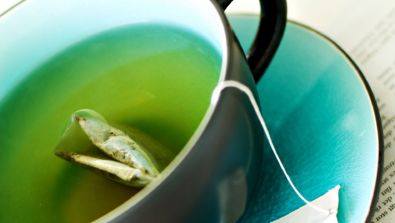
Drinking green tea seems to cut "bad" cholesterol, according to a fresh look at the medical evidence.
The finding may help explain why green tea has been linked to a lower risk of heart disease, the leading killer worldwide, Xin-Xin Zheng and colleagues from Peking Union Medical College in Beijing report.
Because few people in the U.S. drink green tea, encouraging Americans to down more of the brew could have significant health benefits, the researchers write in the American Journal of Clinical Nutrition.
Still, one U.S. expert cautioned the drink shouldn't be used as medicine for high cholesterol, as the effect found in the Chinese study was small.
The new report pools the results of 14 previous trials. In each of those studies, researchers randomly divided participants into two groups: one that drank green tea or took an extract for periods ranging from three weeks to three months, and one that got an inactive preparation.
On average, those who got green tea ended up with total cholesterol levels that were 7.2 milligrams per deciliter (mg/dL) lower than in the comparison group. Their LDL, or "bad," cholesterol dropped 2.2 mg/dL — a decrease of slightly less than two percent.
There was no difference in HDL, or "good," cholesterol between the two groups.
The cholesterol-lowering effects of green tea may be due to chemicals known as catechins, which decrease the absorption of cholesterol in the gut, according to the researcher.
However, the cholesterol reduction with green tea is pretty small, cautioned Nathan Wong, who runs the heart disease prevention program at the University of California, Irvine.
He told Reuters Health the drink "should not be recommended in place of well-proven cholesterol-lowering medicines for people with high cholesterol."
Some researchers have raised concerns over possible side effects from heavy consumption of green tea or green tea extracts. For instance, there have been a few dozen reports of liver damage, and green tea may also interact with certain medications to reduce their effectiveness.
Still, Wong said smaller doses of the brew "could be a useful component of a heart-healthy diet," with benefits that may go beyond its effect on cholesterol.
Article courtesy of foxnews.com

